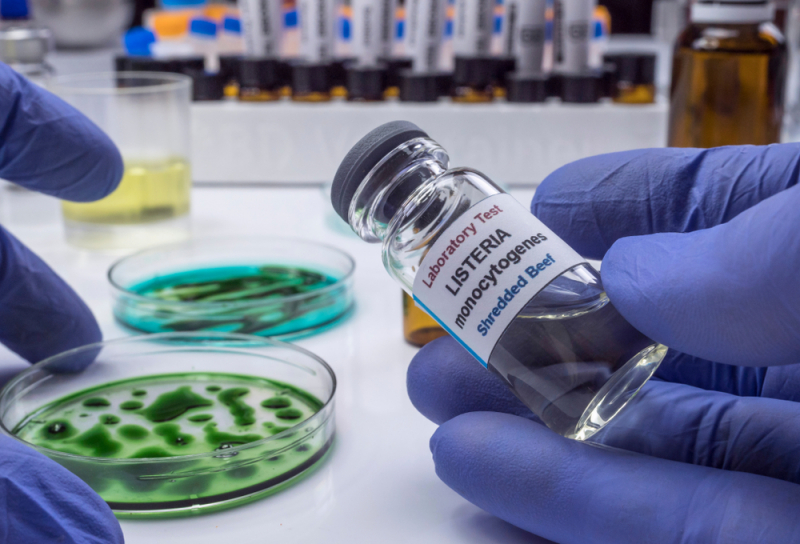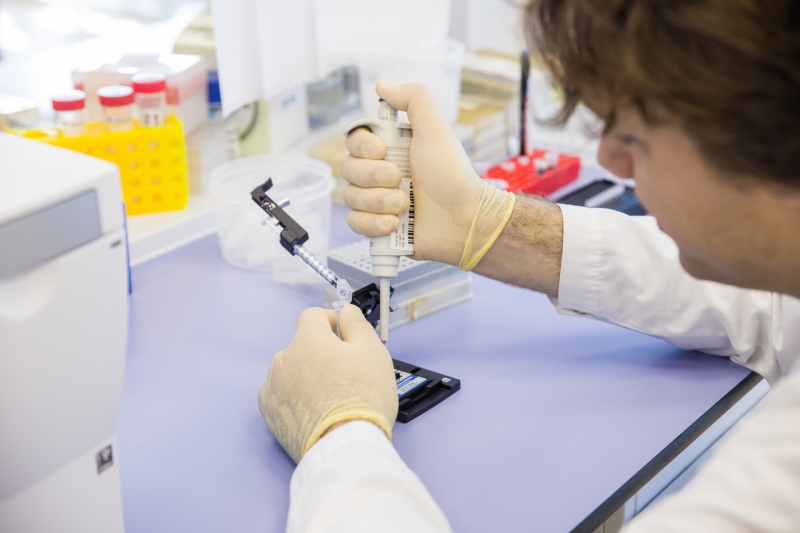The way the immune system functions is an extremely complex process and the mechanics of it have still not been fully understood by scientists. Which proteins are responsible for the immune response? Can an organism be made genetically impervious to all, or at least some malignant bacteria? Biologists and geneticists all over the world seek answers to these questions.
In order to understand how the immune system works, scientists conduct experiments and study mice populations in which the animals possess certain non-functioning genes as a result of prolonged targeted cross-breeding. When this approach, known to scientists as “gene knockout”, results in changes to the way an animal’s immune system operates, it means that the gene has a direct effect on the immune response.

Cell function and listeriosis
An international research team has conducted a study of mice that have had two genes “knocked out”, namely the ones responsible for the production of two proteins: Beclin 1 and FIP200. Notably, the knockout was made not to the entire organism, but to the myeloid (a sub-type of immune cells) cells of the mice. These proteins are involved in the process of autophagy, which is the degradation of molecules and organelles by the cells. It was found that this knockout made the animals almost completely impervious to the Listeria monocytogenes bacteria – the cause of the dangerous disease listeriosis. The disease affects the nervous system and, if left untreated, may be fatal.
“Listeria monocytogenes is a bacterium that divides within the cell,” explains Konstantin Zaitsev, a co-author of the study, PhD student, and staff member of ITMO University’s Computer Technologies Lab. “We’ve found that disabling the genes responsible for Beclin 1 or FIP200 allows the mice to fight off the infection and recover nicely.”
Such a result has to do with the fact that the immune system of a mouse with knocked-out genes is activated permanently, as opposed to regular mice whose immune systems are only activated by external factors. Macrophages, a type of white blood cells, are therefore constantly excited, which allows them to instantly take action when Listeria monocytogenes is introduced to the organism.

“Macrophages are tissue-resident cells and act as a sort of sentinels, always on the lookout for intruders. They can “eat” bacteria, digest them, and then hand them over to the rest of the immune system. In our test mice, these cells are on average much more active than they are in the regular specimens,” says Zaitsev.
The scientists have also confirmed the significance of interferon-gamma molecules to the immune response.
“How are these macrophages activated? By interferon-gamma, a type of immune molecules which immune cells use to communicate with each other. When we knocked out receptors of these molecules within the cells, the changes reverted and the mice became once again vulnerable to listeriosis,” adds Zaitsev.

Everything has a cost
At first glance, gene editing doesn’t seem to have any fatal effect on the test animals’ lives: they grow, develop, feed, and procreate as normal. But that doesn’t mean that turning off their genes leaves the mice unscathed.
As the experiments showed, other infections, such as influenza, still affect the test mice at the same rate as regular mice. It should also be noted that, while the test animals developed nearly in the same manner as their regular counterparts, they were nevertheless vulnerable to their own immune system.

“A permanently active immune system is a double-edged sword,” explains Zaitsev. “There is a lot of background inflammation going on. It’s no accident that the immune system is at rest most of the time. We don’t want it reacting to the many processes that take place within the organism. We’ve found signs of chronic inflammation in the mice’s other organs, such as their liver, lungs, or kidneys.”
Nevertheless, the researchers’ study provides a great deal of analytical material in regards to the effects of proteins Beclin 1 and FIP200 on the immune response to pathogenic microorganisms.
Ya-Ting Wang, Konstantin Zaitsev, Qun Lu, Shan Li, W. Timothy Schaiff, Ki-Wook Kim, Lindsay Droit, Craig B. Wilen, Chandni Desai, Dale R. Balce, Robert C. Orchard, Anthony Orvedahl, Sunmin Park, Darren Kreamalmeyer, Scott A. Handley, John D. Pfeifer, Megan T. Baldridge, Maxim N. Artyomov, Christina L. Stallings, Herbert W. Virgin. Select autophagy genes maintain quiescence of tissue-resident macrophages and increase susceptibility to Listeria monocytogenes. Nature Microbiology, 2019. 10.1038/s41564-019-0633-0





